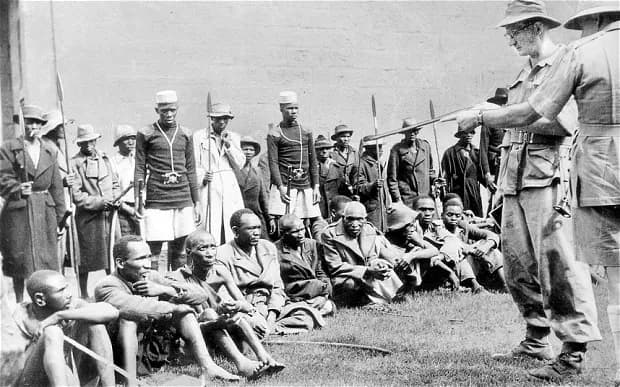We're loading the full news article for you. This includes the article content, images, author information, and related articles.
After years of public outcry and parliamentary scrutiny, the United Kingdom has formally admitted to a range of "extremely regrettable" incidents involving its soldiers in Kenya, including deaths, sexual exploitation, and environmental damage.

The British government has officially acknowledged and expressed "deep regret" over a series of incidents linked to the British Army Training Unit Kenya (BATUK), operating from its Nanyuki base in Laikipia County. This admission, conveyed in a statement to Kenya's National Assembly's Defence Committee on Wednesday, October 22, 2025, follows decades of allegations ranging from unlawful killings and sexual exploitation to environmental degradation.
The UK Ministry of Defence (MOD) stated its commitment to addressing these matters with transparency, responsibility, and respect for Kenyan sovereignty. This development comes amid increasing pressure from Kenyan authorities, victims, and civil society groups for accountability and justice.
BATUK has maintained a permanent training support force in Nanyuki since Kenya's independence in 1963, facilitating training for British troops and providing anti-terrorism training for Kenyan forces. The unit comprises approximately 100 permanent staff and around 280 rotating short-term regiments from the UK, contributing an estimated KSh 5.8 billion to the local economy since 2016.
Despite its economic contributions, BATUK's presence has been overshadowed by numerous allegations of misconduct. These include the mishandling of unexploded ordnance (UXO), which has led to civilian deaths and injuries, and environmental damage, such as the devastating Lolldaiga Conservancy fire in March 2021.
Among the most prominent and tragic cases is the 2012 murder of Agnes Wanjiru, a 21-year-old Kenyan woman whose body was found in a hotel septic tank in Nanyuki two months after she was last seen with British soldiers. A 2019 Kenyan inquest concluded that British soldiers were responsible for her murder, but no one has been charged to date.
The UK has also acknowledged incidents of sexual exploitation and abuse (SEA) involving British Army personnel, admitting that transactional sex occurs at a "low to moderate" level despite a strict zero-tolerance policy. An ITV documentary in September 2024 revealed fresh allegations of sexual violence, including against minors.
Another significant incident involves Robert Seurei, who was killed in 2007 after picking up unexploded ordnance from a training area. The MOD reached a financial settlement with Seurei's family in 2010.
The Defence Cooperation Agreement (DCA) between Kenya and the UK, renewed in July 2021, governs the presence of British troops. While the revised 2021 DCA technically subjects British soldiers accused of specific crimes, including rape and murder, to Kenyan jurisdiction, enforcement has faced challenges.
In April 2023, Kenyan lawmakers ratified a new five-year defence cooperation agreement and recommended allowing British soldiers charged with murder to be tried locally. However, this amendment does not apply retrospectively to cases like Agnes Wanjiru's.
Kenya's National Assembly's Defence, Intelligence and Foreign Relations Committee launched a formal inquiry into alleged abuses by BATUK in August 2023, with public hearings commencing in May 2024. The committee's findings are expected to have implications for the future of the defence agreement.
The UK MOD has stated that it is cooperating with Kenyan authorities and has implemented measures to prevent future abuse, including curfews, movement restrictions, military police oversight, and command-led training. A liaison officer from the Kenya Police is also embedded at the BATUK base.
The ongoing parliamentary inquiry and the UK's commitment to transparency will be crucial in determining the path forward for the Kenya-UK defence partnership. The resolution of high-profile cases, particularly the murder of Agnes Wanjiru, and effective implementation of measures to prevent future abuses will be key indicators of progress.
Keep the conversation in one place—threads here stay linked to the story and in the forums.
Sign in to start a discussion
Start a conversation about this story and keep it linked here.
Other hot threads
E-sports and Gaming Community in Kenya
Active 9 months ago
The Role of Technology in Modern Agriculture (AgriTech)
Active 9 months ago
Popular Recreational Activities Across Counties
Active 9 months ago
Investing in Youth Sports Development Programs
Active 9 months ago